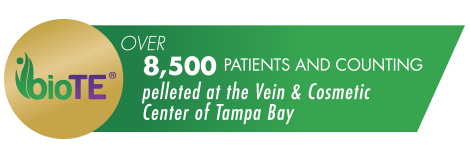Blog
Most people think of testosterone as a male-only hormone, but that actually is not the case. In fact, testosterone (T) is the most abundant active hormone in women and is essential for a variety of mental and physical health functions.
Here are some of the most common myths and misconceptions about testosterone and testosterone in women.
1. Testosterone makes women “masculine”
While testosterone is commonly thought of as the “male hormone,” the truth is that at normal levels T does not make women’s voices deeper or more hoarse, cause them to grow excess facoa; hair, or diminish their femininity in any way. Actually, at certain times during a woman’s lifespan, testosterone levels measure up to 10 times higher than estrogen levels.
Yes, testosterone is given in high levels to male-to-female transgender patients to bring about a more masculine appearance. However, lower doses of T in women can actually make them “more feminine.”
2. Testosterone only impacts a woman’s sex drive
Yes, testosterone does have a role in a woman’s libido, but this is only a small fraction of the way T affects women. Testosterone also plays a role in mood regulation, physical activity, energy levels, and more.
Levels of both testosterone and estrogen can drop dramatically when a woman enters pre-menopause, and recent studies show that T hormone replacement therapy is highly beneficial in counteracting the many changes this phase life brings to a woman’s body and mind.There are a number of ways T hormone therapy can impact women before, during, and after menopause who suffer from androgen deficiency due to low levels of testosterone, estrogen, and other androgens.
- Reduce anxiety, depression, and irritability
- Reduce bone and muscle loss
- Combat physical fatigue
- Reduce hot flashes
- Prevent cognition changes and memory loss
- Reduce incontinence
- Decrease sexual dysfunction
According to a recent scholarly article on the function of testosterone in women, “Functional, biologically active, ARs (androgen receptors) are located throughout the body in both sexes: to assume that androgen deficiency does not exist in women, or that T therapy should not be considered in women, is unscientific and implausible.”1
3. Testosterone causes hair loss
There is no scientific or anecdotal evidence supporting claims that testosterone causes hair loss. More likely, patients who are taking T to combat signs and symptoms of aging are experiencing age-related hair loss (which happens to both men and women). Up to 33% of women begin to lose hair as they age, at around the same time their testosterone levels drop. And contrary to popular belief, nearly two-thirds of women begin to experience hair regrowth when treated with testosterone.
4. Testosterone is bad for the heart
Men carry higher levels of testosterone than women, and men also have higher rates of heart disease than women. Still, this is not a causational relationship (meaning high T does not lead to heart disease). In fact, T can have positive effects on lean body mass as well as lipid profiles in both men and women—and T has been used to treat patients with cardiovascular disease.
5. Testosterone makes people aggressive
The basis for this misconception lies in a confusion between anabolic steroids and T therapy. Yes, anabolic and synthetic steroids may make people more aggressive. However, testosterone therapy is different and actually leads to decreased levels of aggression, irritability, and anxiety.
In conclusion, patients of both genders can greatly benefit from testosterone therapy. Bio-Identical Hormone Replacement Therapy (BHRT) has been studied in both men and women in great depth, and has been found to be both safe and effective. If you are interested in learning more about BioTEⓇ and how hormone therapy may benefit you, please contact us today.
1 Glasser R, Dimitrakakis D. Testosterone therapy in women: myths and misconceptions. Maturitas. 2013 Mar; 74(7): 230-234. Available: https://doi.org/10.1016/j.maturitas.2013.01.003. Accessed September 14, 2020.











